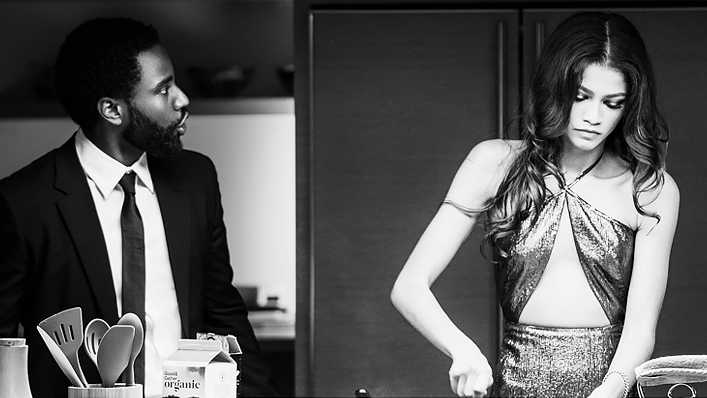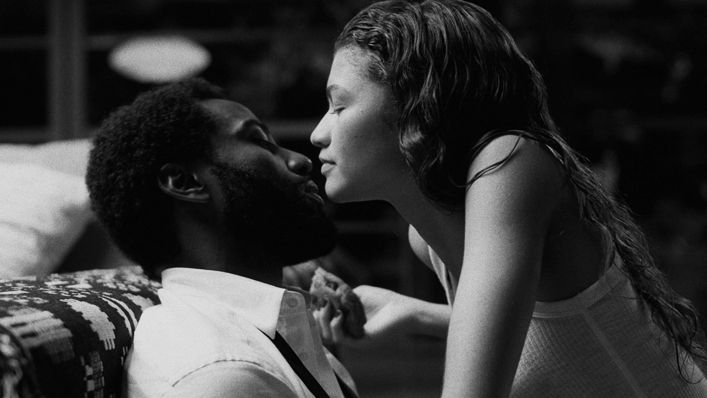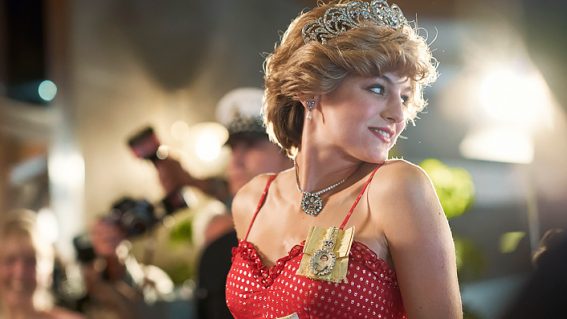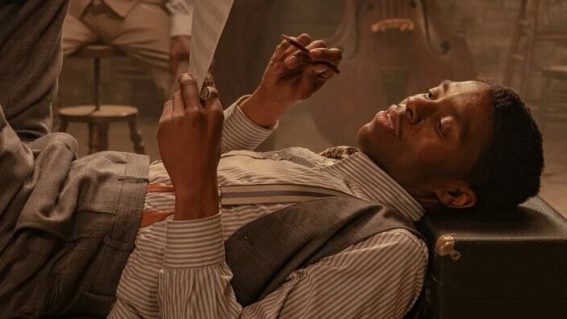Malcolm & Marie is Netflix’s super stylish shouting match

Malcolm & Marie (which arrives on Netflix on February 5) is a stylishly executed drama about a testy period in the relationship between a film director (John David Washington) and his girlfriend (Zendaya). Here’s critic Luke Buckmaster’s review.
It’s been a while since a film has made me want to sip fine whiskey, sit on a chesterfield and listen to vinyl records, attempting to channel a higher level of fashionability to match its stylish soigné. This at least was my initial response to writer/director Sam Levinson’s elegantly made single-setting two-hander, presented in ravishing black and white and—as its opening credits proudly declare—shot using 8MM cameras. Because style. Because sophistication.
See also:
* The 10 best Netflix Original Movies from 2020
* All new movies & series on Netflix Australia
* All new streaming movies & series
Because this chic chatty drama exploring the volatile relationship between a film director named Malcolm (John David Washington) and his significantly younger girlfriend Marie (Zendaya) is tuned to the palettes of the discerning cineaste. But that initial feeling—that I was under-dressed, or not consuming fine enough liquid, or not sitting on nice enough furniture—took a turn as the running time progressed, when it became clear the film’s aesthetic grace was at odds with its lacerating dialogue and intense personalities.

Particularly Malcolm: an extremely angry and shouty man who snarls “I could snap you like a twig” to Marie, in a threat of verbal rather than physical violence—as if his very entire existence is a challenge to that old expression about sticks and stones breaking bones but words never hurting. When Malcolm concludes one of his seemingly endless vitriol-spraying monologues he collapses on the couch, exhausted, drained of visage and panting heavily, completely worn out by himself.
Maybe that’s why the film’s aesthetic is so stylish: we need to like the way it looks because we won’t like how it sounds. Marie is the only other person on the receiving end of Malcolm’s rants (this is a ‘pure’ two-hander, as in, there are only two characters), though she is far from a pushover. Zendaya would never let that happen: she summons power and poise with a performance that’s quietly thrilling; emotionally raw yet dignified.
Levinson begins with an opening shot nondescript in time and place: a monochrome exterior image capturing a partly obscured house in front of a long driveway, down which a car travels, its bright headlights signifying the proper beginning. Early feelings that this will be a production tailored for cinephiles is reiterated in the first lines of dialogue, with Malcolm exclaiming “we fuckin’ did it…I wrote and directed and premiered a movie that knocked the audience the fuck out tonight!”
That confusion around the achievements of “we” or “I”—in other words, the role Marie may or may not have played in her partner’s accomplishments—turns out to be a core issue. The first argument in the picture relates to Malcolm snubbing Marie during a speech at the premiere; she is understandably upset, but for complex reasons.
Sometimes the film’s tone and tempo changes, offering slight reprieves when the characters physically embrace. These moments occur less and less despite a likely desire to see them more and more. Made due to and during COVID-related shutdowns (the pandemic suspending larger productions), with a quickly written script drawing inspiration from the director’s own life, the film seems to intentionally put to the test that old line from Orson Welles, how about “the enemy of art is the absence of limitations”.
The framing of the couple’s early interactions takes place from outside the house looking in, the camera tracking left and right, evoking a horizontal sense of space you don’t often see often in films—almost like a platformer video game. I didn’t want Levinson to cut inside but of course he does, moving into close proximity with the actors, both of whom deliver very engaging performances, pouncing on their lines and making them snap and crackle.

Their performances (particularly Washington’s) are showy—this is acting with a capital “A”—but you can understand why; the film’s pace and swagger might have waned otherwise, with no other people or places to move to. The intense shoutiness—a product and consequence of Malcolm’s intellectual alphamale personality—is exhausting, but the script’s snobby self-consciousness has more galling ways of wearing you down.
In one scene Malcolm fumes about how a journalist compared him to Spike Lee and Berry Jenkins instead of Billy Wyler—part of a long conversational thread that seems configured to indirectly address this film being about people of colour but written and directed by a white man. Malclom is also furious about a critic—the “white lady from the L.A. Times”—and rants about her (rave) review didn’t get ‘get it’, reiterating Levinson’s view that it’s nobler to create art than criticize it. A more interesting discussion waxes on the nature of inclusion in Hollywood, i.e. when it’s genuine and when it’s tokenistic.
It’s these conversations that are likely to give the film an anchor in time; to mark it as work quintessentially of this era. The production values, as we have already ascertained, do no such thing—though they certainly seduce you into its world. “A memorable night in” sounds like a vague plaudit with which to describe the drama, but it’s true—especially for the characters.















